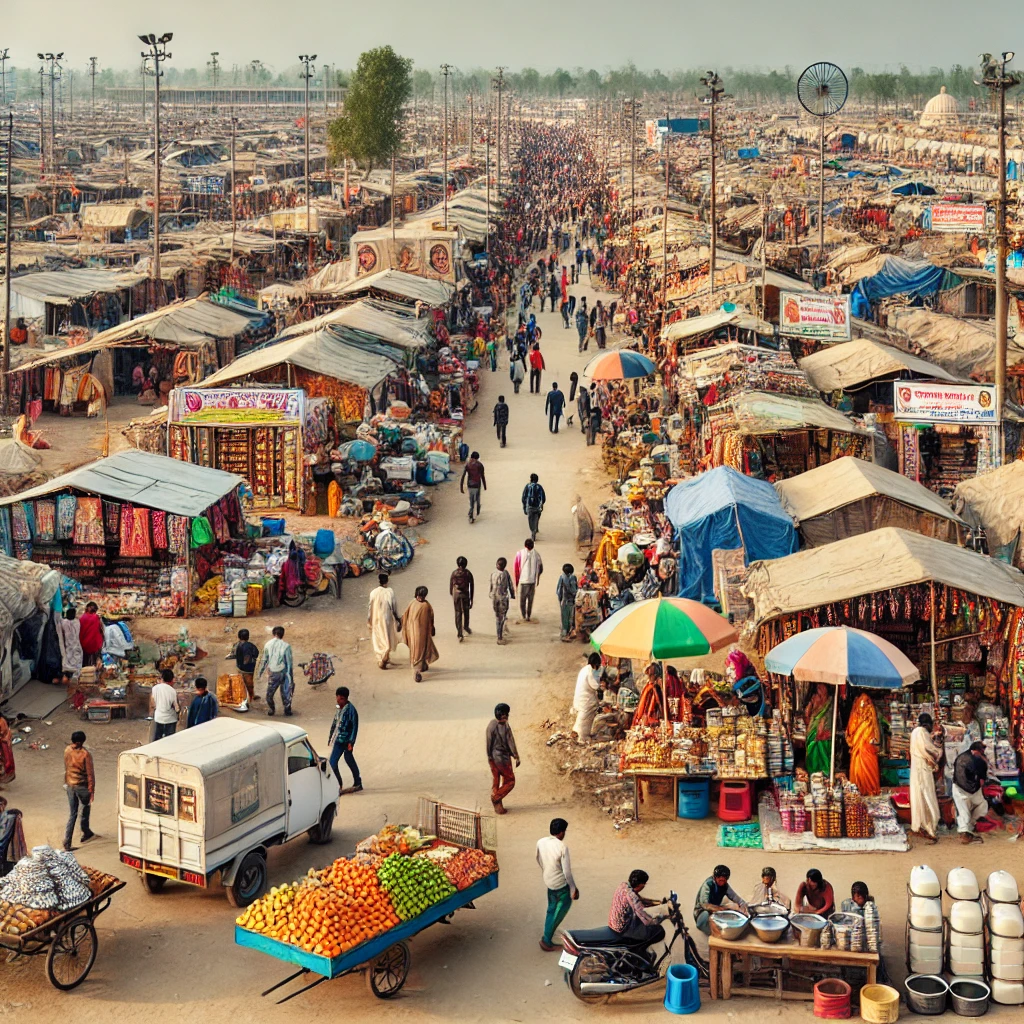Economic Boost & Challenges After Kumbh Mela
The Kumbh Mela, the largest religious festival in the world, is not only a religious event but also a huge economic booster. The arrival of millions of pilgrims, tourists, and vendors provides a huge economic boost to the local economy. But with the economic benefits comes several economic challenges that need strategic planning and management.
Economic Benefits of Kumbh Mela
Tourism and Hospitality Growth
One of the largest gainers of the Kumbh Mela is the hospitality and tourism industry. There is a high demand for hotels, lodges, and temporary shelters, generating huge revenues for local enterprises. Restaurants, food stalls, and transport services also see a huge influx of customers, boosting the economy.
Employment Generation
The preparations for the Kumbh Mela involve a huge workforce, generating temporary employment opportunities in construction, security, sanitation, transport, and event management. Vendors and artisans selling religious goods, souvenirs, and handicrafts also gain from higher sales.
Boost to Local Businesses
Small enterprises, ranging from tea stalls to clothing vendors, see an increase in sales during the festival. Numerous shopkeepers prepare months earlier to accommodate the large number of tourists, which contributes positively to their revenues.
Infrastructure Development
Government officials spend a lot of money on infrastructure development like roads, sanitation, public transport, and healthcare facilities. These are not only helpful for the Kumbh Mela but also for the city and its people in the long term.
Economic Challenges After Kumbh Mela
Post-Event Economic Slowdown
After the Kumbh Mela concludes, the temporary economic boost recedes, resulting in decreased demand for services and commodities. Several businesses that have flourished during the festival might fail to maintain profits afterward.
Financial Burden on Local Administration
It involves considerable government spending on security, sanitation, infrastructure, and public services. Maintaining post-event upkeep and ensuring that the investments are still serving the local population can be problematic.
Waste Management and Environmental Costs
The huge turnout produces a large quantity of waste, necessitating massive cleanup activities. Environmental restoration efforts and sustainability are a financial challenge for local governments.
Seasonal Employment Issues
Many workers employed during the Kumbh Mela face job loss once the event concludes. Finding alternative employment opportunities for these temporary workers is an ongoing challenge.
Conclusion
Although the Kumbh Mela has a profound economic impact of boosting tourism, jobs, and local economies, it also offers challenges that can be managed so that the sustainability is long-lasting. Proper management, investment, and sustainable concepts can help abate post-festival economic stagnation and contribute to lasting positives for the city and its dwellers.

